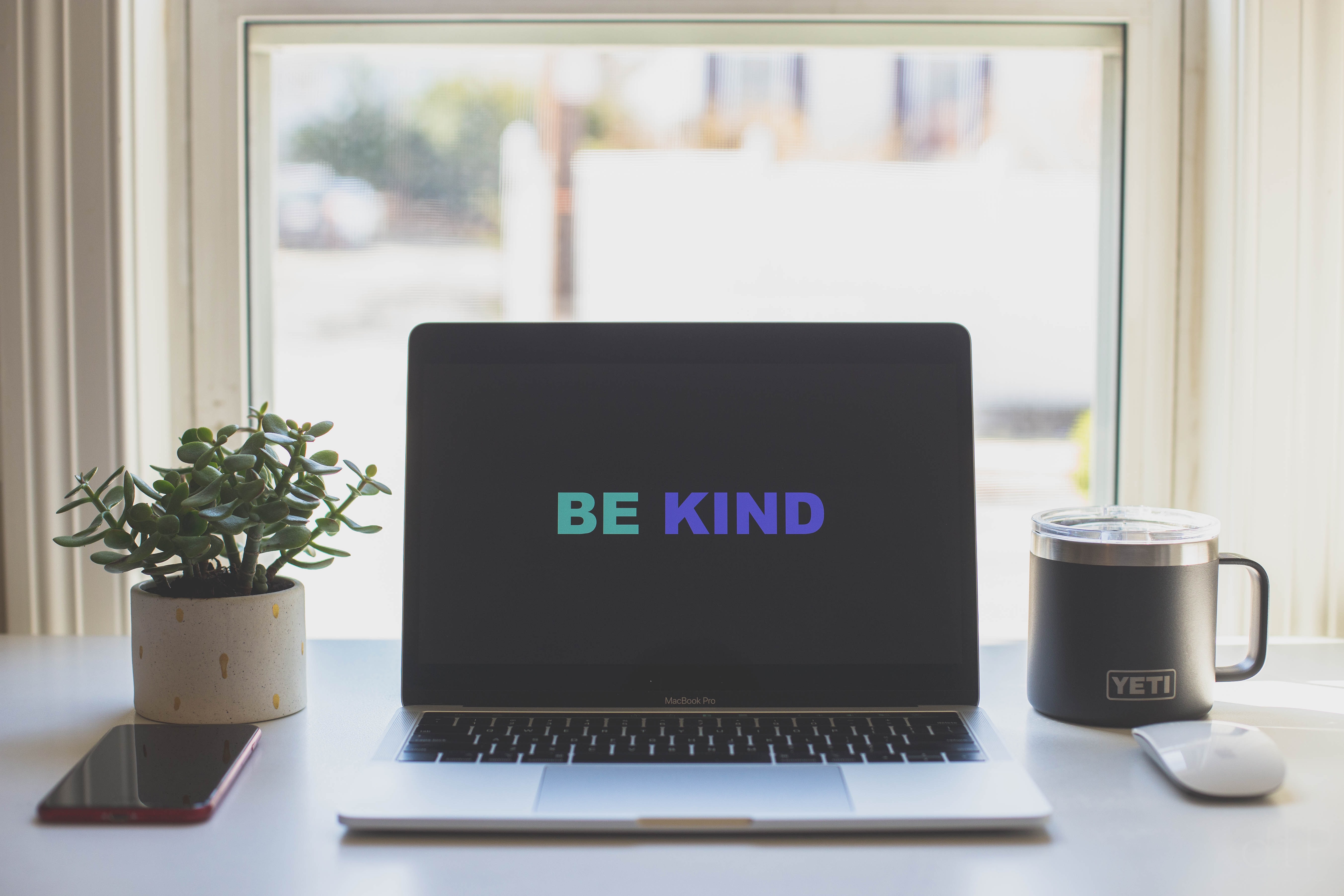
Photo by Dayne Topkin on Unsplash
Kindness is often overlooked as a way of caring for yourself and others, but it can be the key to boosting well-being and unlocking positive habits for life. In a recent poll, two-thirds of people said that when others are kind to them it has a positive impact on their mental health, and this is clearly true.
However, did you know that kindness to yourself is one of the best things you can do to conquer emotional eating?
My studies have proved this many times over the past decade and it was reinforced by a 2019 study by the Universities of Exeter and Oxford in the UK.
Being kind to yourself helps people stick to their weight-loss goal, the research showed. That’s because so many unhealthy eating habits are driven by difficulties in managing our emotions.
If people are self-compassionate, they tend to stop eating when they’re full. But people who are not in such a good place tend to keep overeating as a way to draw out negative emotions.
It’s SO important to stop being negative about yourself. Stop criticising everything you do. You must look for the positives and the kindness in your life.
Easier said than done? Well, to gain control over your inner critic you have to first be aware of it.
Neuroscientists believe we have between 20,000 and 60,000 thoughts a day, but only about five per cent of them are about what we’re actually doing at any given moment.
The rest of them are totally random and often negative self-talk – basically, the things we tell ourselves we can’t do.
During every conscious moment we have an inner dialogue with ourselves. Much of our thinking is so automatic and happening so rapidly that we hardly notice it’s going on.
Making an effort to slow down and pay more to your thoughts will help you notice when the critic is at work!
Your emotions will also cue you to the presence of the critic. Negative emotions such as self-doubt, guilt, shame and the feeling of worthlessness are almost always signs of the critic at work.
Kindness starts with an “inner critic log”
Try this for one week – it’s very simple: keep an “inner critic” log on your phone or in a journal.
Every time you notice yourself being self-critical, just note two or three words about the situation – for example “I’m standing in front of the mirror”.
This all helps because when you’re aware of the critical voice, you’ll be able to stand up to it.
The next big step is to disassociate yourself from it. This voice isn’t you. It’s something that’s muscled in on you.
The inner critic doesn’t want you to notice it. It thrives best when you mistake it for being part of your authentic self.
Here’s the thing: you weren’t born with an inner critic.
The critic is a voice that you’ve created based on outside influences and learning, such as other people’s criticism, expectations, or standards.
One way to separate from the critic is to give it a name.
Any name will work – but to add some power, give it a name of someone or something you don’t like.
The important thing is that by separating it from your own identity, you are on your way to freeing yourself from the influence it’s had over you.
Next step – talk back to it!
Kindness needs tough action
Talking back to your inner critic is an important part of taking away its power. Simply telling the critic you don’t want to hear what it has to say begins to give you a sense of choice in the matter.
When you hear the inner critic start to speak, tell it to go away.
Tell it you refuse to listen.
Tell it off for telling you lies!
Tell it you are choosing instead to be kind to yourself.
The best way to defeat the critic is to replace it; grow an inner voice that acts as your own best friend.
But to do this, you need to start noticing the GOOD things about yourself. It may take you some effort to retrain yourself to see them but I can assure you they are there!
Kindness means not saying this
Because of the way our brain works, we all have an automatic selective filtering system that will look for evidence in our environment that matches up with whatever we believe to be true about ourselves.
We will then shut out other evidence to the contrary. If you are always saying to yourself “I am useless” – you’ll then focus on those things because they match up with what you say to yourself.
To break this automatic process, you have to first make the deliberate effort to say something different to yourself and then your brain will begin to search for evidence that it’s true.

